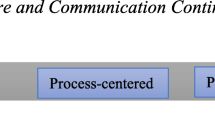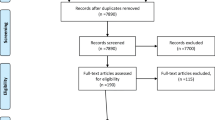Abstract
Objective
To describe the development and psychometric testing of the Multidimensional Trust in Health Care Systems Scale (MTHCSS).
Methods
Scale development occurred in 2 phases. In phase 1, a pilot instrument with 70 items was generated from the review of the trust literature, focus groups, and expert opinion. The 70 items were pilot tested in a sample of 256 students. Exploratory factor analysis was used to derive an orthogonal set of correlated factors. In phase 2, the final scale was administered to 301 primary care patients to assess reliability and validity. Phase 2 participants also completed validated measures of patient-centered care, health locus of control, medication nonadherence, social support, and patient satisfaction.
Results
In phase 1, a 17-item scale (MTHCSS) was developed with 10 items measuring trust in health care providers, 4 items measuring trust in health care payers, and 3 items measuring trust in health care institutions. In phase 2, the 17-item MTHCSS had a mean score of 63.0 (SD 8.8); the provider subscale had a mean of 40.0 (SD 6.2); the payers subscale had a mean of 12.8 (SD 3.0); and the institutions subscale had a mean of 10.3 (SD 2.1). Cronbach’s α for the MTHCSS was 0.89 and 0.92, 0.74, and 0.64 for the 3 subscales. The MTHCSS was significantly correlated with patient-centered care (r = .22 to .62), locus of control—chance (r = .42), medication nonadherence (r = −.22), social support (r = .25), and patient satisfaction (r = .67).
Conclusions
The MTHCSS is a valid and reliable instrument for measuring the 3 objects of trust in health care and is correlated with patient-level health outcomes.
Similar content being viewed by others
References
Hall MA, Dugan E, Zheng B, Mishra AK. Trust in physicians and medical institutions: what is it, can it be measured, and does it matter? Milbank Q. 2001;79(4):613–39.
Pearson SD, Raeke LH. Patients’ trust in physicians: many theories, few measures, and little data. J Gen Intern Med. 2000;15:509–13.
Govier T. Distrust as a practical problem. J Soc Philos. 1992;23(1):52–63.
Bigley GA, Pearce JL. Straining for shared meaning in organization science: problems of trust and distrust. Acad Manage Rev. 1998;23(3):405–22.
Lewicki R, McAllister D, Bies R. Trust and distrust: new relationships and realities. Acad Manage Rev. 1998;23(3):438–58.
Anderson LA, Dedrick RF. Development of the trust in physician scale: a measure to assess interpersonal trust in patient–physician relationships. Psychol Rep. 1990;67:1091–100.
Thom DH, Campbell B. Patient–physician trust: an exploratory study. J Fam Pract. 1997;44:169–76.
Kao AC, Green DC, Zaslavsky AM, Koplan JP, Cleary PD. The relationship between method of physician payment and patient trust. JAMA. 1998;280:1708–14.
Mechanic D. Changing medical organization and the erosion of trust. Milbank Q. 1996;74:171–89.
Mechanic D, Meyer S. Concepts of trust among patients with serious illness. Soc Sci Med. 2000;51(5):657–68.
Thom DH, Ribisl KM, Stewart AL, Luke DA. Further validation and reliability testing of the Trust in Physician Scale. The Stanford Trust Study Physicians. Med Care. 1999;375(5):10–7.
Hall MA, Zheng B, Dugan E, Camacho F, Kidd KE, Mishra A, Balkrishnan R. Measuring patients’ trust in their primary care providers. Med Care Res Rev. 2002;59(3):293–318.
Corbie-Smith G, Thomas SB, St George DM. Distrust, race, and research. Arch Intern Med. 2002;162(21):2458–63.
Hall MA, Camacho F, Dugan E, Balkrishnan R. Trust in the medical profession: conceptual and measurement issues. Health Serv Res. 2002;37(5):1419–39.
Rose A, Peters N, Shea JA, Armstrong K. Development and testing of the health care system distrust scale. J Gen Intern Med. 2004;19(1):57–63.
Thompson HS, Valdimarsdottir HB, Winkel G, Jandorf L, Redd W. The group-based medical mistrust scale: psychometric properties and association with breast cancer screening. Prev Med. 2004;38(2):209–18.
Goold SD, Fessler D, Moyer CA. A measure of trust in insurers. Health Serv Res. 2006;41(1):58–78.
Zheng B, Hall MA, Dugan E, Kidd KE, Levine D. Development of a scale to measure patients’ trust in health insurers. Health Serv Res. 2002;37(1):187–202.
Dugan E, Trachtenberg F, Hall MA. Development of abbreviated measures to assess patient trust in a physician, a health insurer, and the medical profession. BMC Health Serv Res. 2005;5:64.
Doescher MP, Saver BG, Franks P, Fiscella K. Racial and ethnic disparities in perceptions of physician style and trust. Arch Fam Med. 2000;9(10):1156–63.
LaVeist TA, Nickerson KJ, Bowie JV. Attitudes about racism, medical mistrust, and satisfaction with care among African American and white cardiac patients. Med Care Res Rev. 2000;57(Suppl 1):146–61.
Cort MA. Cultural mistrust and use of hospice care: challenges and remedies. J Palliat Med. 2004;7(1):63–71.
Alston RJ. Racial identity and cultural mistrust among African-American recipients of rehabilitation services: an exploratory study. Int J Rehabil Res. 2003;26(4):289–95.
Moseley KL, Freed GL, Bullard CM, Goold SD. Measuring African-American parents’ cultural mistrust while in a healthcare setting: a pilot study. J Natl Med Assoc. 2007;99(1):15–21.
Boulware LE, Cooper LA, Ratner LE, LaVeist TA, Powe NR. Race and trust in the health care system. Public Health Rep. 2003;118(4):358–65.
Laveist TA, Nuru-Jeter A. Is doctor–patient race concordance associated with greater satisfaction with care? J Health Soc Behav. 2002;43(3):296–306.
Cooper-Patrick L, Gallo JJ, Gonzales JJ, Vu HT, Powe NR, Nelson C, Ford DE. Race, gender, and partnership in the patient–physician relationship. JAMA. 1999;282(6):583–9.
Statistical Package for the Social Sciences (SPSS 14.0). Chicago, IL: SPSS; 2006.
Nunnally JC, Bernstein I. Psychometric Theory. 3 ed. New York: McGraw-Hill; 1994.
Cleary PD, Edgman-Levitan S, Roberts M, Moloney TW, McMullen W, Walker JD, Delbanco TL. Patients evaluate their hospital care: a national survey. Health Aff. 1991;10:254–67.
Cleary PD, Edgman-Levitan S, McMullen W, Delbanco TL. The relationship between reported problems and patient summary evaluations of hospital care. Qual Rev Bull. 1992;18:53–9.
Edgman-Levitan S, Cleary PD. What information do consumers want and need? Health Affairs. 1996;15(4):42–56.
Wallston KA, Wallson BS, DeVellis R. Development of the multidimensional health locus of control (MHLC) scales. Health Educ Mongr. 1978;6:160–70.
Morisky DE, Green LW, Levine DM. Concurrent and predictive validity of a self-reported measure of medication adherence. Med Care. 1986;24(1):67–74.
Sherbourne CD, Stewart AL. The MOS social support survey. Soc Sci Med. 1991;32(6):705–14.
Acknowledgment
We are grateful to the following summer undergraduate research students who assisted with data collection for the different phases of the project over the past 3 years: Douglas Gleaton, Melodie Harrison, Antoinette Bennett, Ashley Hambright, Sylvia Smith, and Brittany Smalls.
Conflict of interest
None disclosed.
Author information
Authors and Affiliations
Corresponding author
Rights and permissions
About this article
Cite this article
Egede, L.E., Ellis, C. Development and Testing of the Multidimensional Trust in Health Care Systems Scale. J GEN INTERN MED 23, 808–815 (2008). https://doi.org/10.1007/s11606-008-0613-1
Received:
Revised:
Accepted:
Published:
Issue Date:
DOI: https://doi.org/10.1007/s11606-008-0613-1




